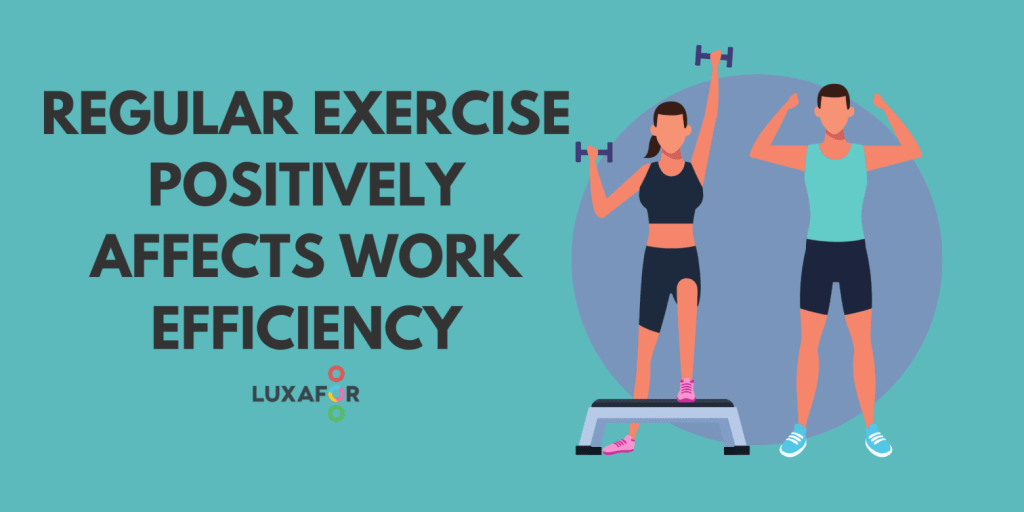Neuroscience research suggests that regular exercise positively affects work efficiency
- Updated on: June 12, 2024
The magic formula for how to become productive, happy, and successful in life is very simple and achievable for most of us.
New neuroscience research gives us more proof that an active lifestyle and willingness to take care of your health will not only make you feel better physically, but also mentally.
Continue reading to find out how regular exercise helps you achieve your daily goals at work.

Source: Unsplash
First of all, physical exercise will eliminate stress. Quoting Wendy A. Suzuki, “Exercise is a powerful way to combat feelings of stress because it causes immediate increases in levels of key neurotransmitters, including serotonin, noradrenalin, dopamine and endorphins, that are often depleted by anxiety and depression.”
Secondly, regular exercise will boost your ability to shift between different tasks and focus on the work you need to get done. This is because better blood flow leads to an increase in brain functions.
Thirdly, having an active lifestyle will improve your memory, especially when exercising has become a crucial part of your life. Establishing a routine of exercising on regular basis will activate the long-term growth of the hippocampal cells, which are responsible for a long-term memory.
And last, but not least, exercising might also increase your capacity for imagination, or creativity at work.
All of these benefits will help maintain your self-motivation at work and your willingness to continue exercising.
“The longer and more regularly you exercise through your life, the lower your chances are of suffering from cognitive decline and dementia as you age.” Wendy. A. Suzuki, Quartz
Do you want to build and maintain new habits? Get your free PDF version of the Don't Break The Chain calendar and start today!
Do you want to build and maintain new habits? Get your free PDF version of the Don't Break The Chain calendar and start today!
The original post ‘‘A neuroscientist says there’s a powerful benefit to exercise that is rarely discussed” was published on Quartz, January 13, 2016 (written by Wendy A. Suzuki)















